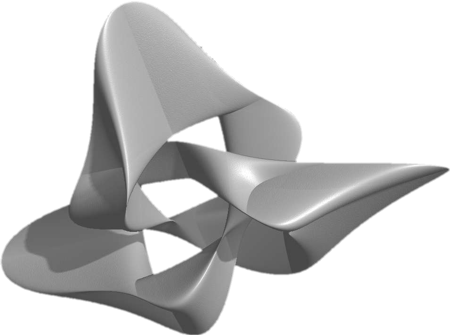René Descartes
The Father of Modern Philosophy and His Mathematical Legacy
René Descartes, a 17th-century French philosopher, mathematician, and scientist, is often regarded as the father of modern philosophy. His famous assertion, Cogito, ergo sum (“I think, therefore I am”), epitomizes his foundational approach to knowledge and certainty. This phrase, introduced in his seminal work Discourse on the Method (1637), encapsulates Descartes’ belief that thought is the essence of human existence, and self-awareness is the bedrock of all knowledge.
Contributions to Mathematics
Descartes’ influence extends far beyond philosophy into the realm of mathematics, where his work laid the groundwork for analytical geometry. His development of the Cartesian plane, a system that connects algebra and Euclidean geometry, revolutionized mathematics by providing a new way to describe geometric shapes using algebraic equations. By introducing a coordinate system with perpendicular axes (now known as the x and y axes), Descartes made it possible to represent geometric figures numerically, paving the way for modern calculus and the visualization of mathematical functions.
Imaginary Numbers
While Descartes did not fully develop the concept of imaginary numbers, his contributions to the field were significant. He coined the term “imaginary” to describe numbers that involve the square root of negative one (√-1). Though Descartes himself was skeptical of their practical utility, his identification of imaginary numbers laid the groundwork for future mathematicians like Euler and Gauss, who would later demonstrate their profound importance in complex number theory and various applications in engineering and physics.
Musical Intonation
Descartes also made contributions to music theory, particularly concerning musical intonation. His early work, Compendium Musicae (1618), explored the mathematical relationships governing musical harmony and proportion. In this treatise, Descartes applied mathematical reasoning to understand sound frequencies and intervals, attempting to quantify aesthetic perceptions of harmony. This work bridged the gap between mathematics and art, influencing later developments in acoustics and music theory.
Notable Works
In addition to Discourse on the Method, Descartes authored several influential texts:
- Meditations on First Philosophy (1641): A philosophical exploration of metaphysics and epistemology, where Descartes expands on his method of doubt and the existence of God.
- Principles of Philosophy (1644): A comprehensive synthesis of his philosophical and scientific ideas, intended as a textbook for students of natural philosophy.
- La Géométrie (1637): An appendix to Discourse on the Method, this groundbreaking work introduced the Cartesian coordinate system and applied algebra to geometry, fundamentally transforming mathematics.
Legacy
René Descartes’ intellectual legacy is vast, influencing not only philosophy but also mathematics, science, and the arts. His pioneering work in analytical geometry and contributions to understanding mathematical and musical structures continue to resonate today. Through his rigorous method of doubt and emphasis on reason, Descartes reshaped the intellectual landscape of the Western world, earning his place as one of history’s most influential thinkers.
